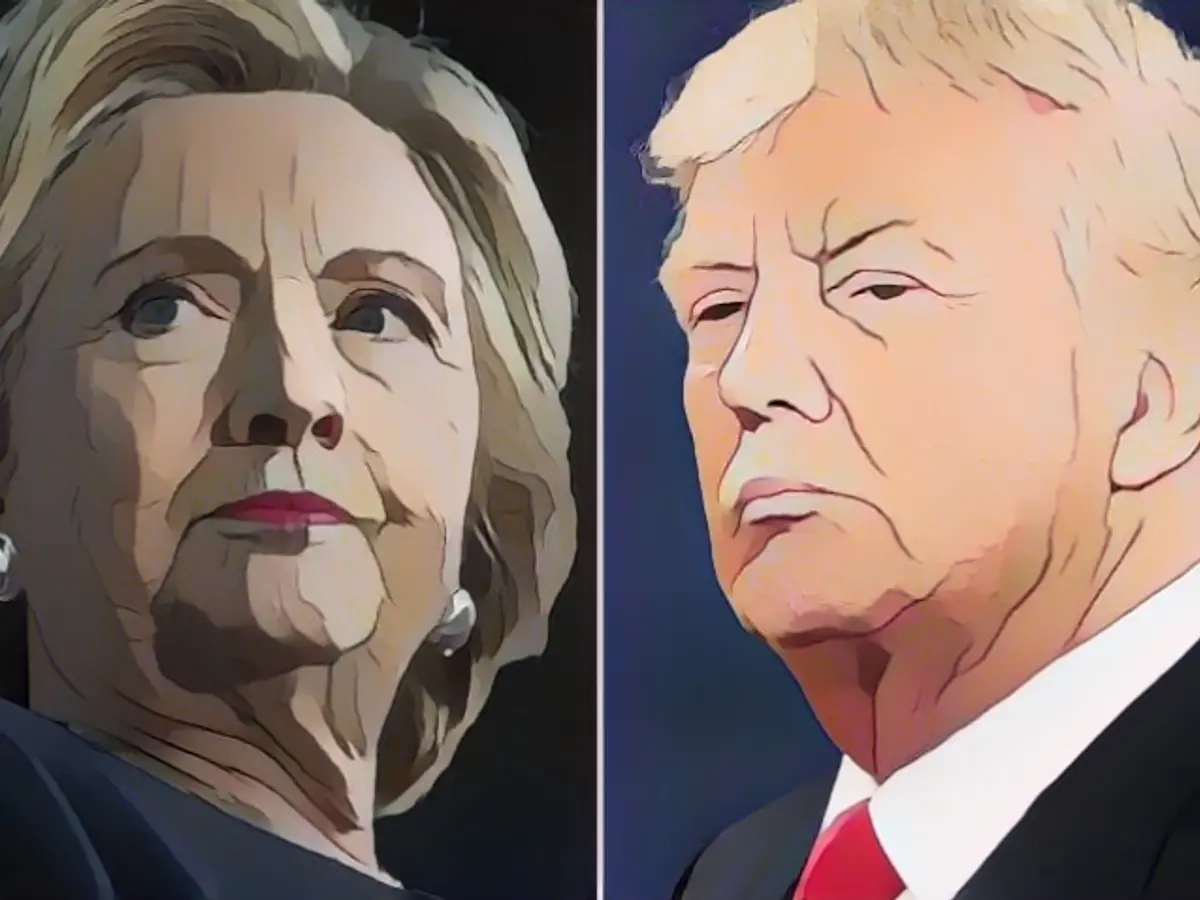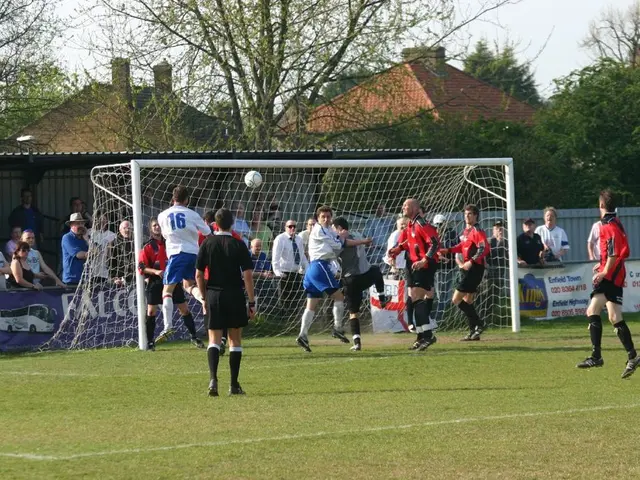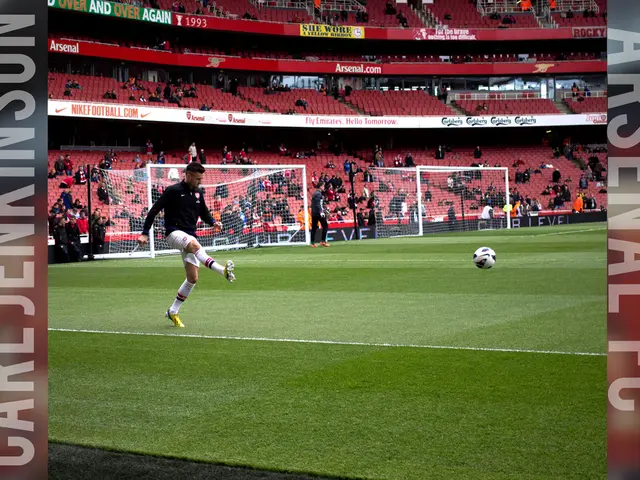Trump's document destruction habits raise serious concerns
Donald Trump's disregard for rules is setting a worrying example
The destructive tendencies of former President Donald Trump have raised eyebrows among political circles. His predecessors have faced consequences for similar actions, but Trump surpasses them all, flagrantly violating laws established post-Watergate.
Recent reports suggest that during his presidency, Trump had developed a habit of destroying documents. CNN political analyst Maggie Haberman reported that White House employees would often discover toilet bowls clogged with wet document bundles. Trump denies the allegation, calling it "categorically false."
Furthermore, at least 15 boxes filled with documents and other items were transported from the White House to Florida by Trump at the end of his tenure. While his advisers claim these boxes contained mementos, gifts, and letters, the National Archives and Records Administration (NARA) is now urging an investigation from the Department of Justice (DOJ) into Trump's access to White House documents.
Although the Presidential Records Act was not legislated until 1981, presidents had been voluntarily preserving documents since the 1930s, laying the groundwork for presidential libraries. Following Watergate, Congress aimed to restrict the president's influence over information that the public could access or not. They sought to promote a more informed understanding of the presidency for future leaders and provide them with essential information for academic, investigative, national security, or other purposes.
Historians rely heavily on these records, providing the most detailed and accurate accounts of presidents and their administrations. During visits to presidential libraries, visitors stroll through exhibits while historians delve into crates of memos, letters, reports, and more.
The Presidential Records Act, however, has limitations, primarily in its lack of a strong enforcement mechanism. James Grossman, executive director of the American Historical Association, points out that "I doubt anyone ever envisioned the need for a mechanism to enforce this law."
Democrats, like Senator Chris Murphy (D-CT) and Representative Mike Quigley (D-IL), proposed legislation in 2022 advocating annual archivist inspections. However, the efforts have thus far been unsuccessful.
Trump's ability to evade the Presidential Records Act underscores broader concerns in recent years. Our democratic system and checks and balances rely on the belief that elected officials will adhere to the norms of their office and not persistently pursue power. We expect presidents to uphold internal guidelines and not compromise principles in pursuit of power loss. Moreover, we expect lawmakers to prioritize national interests over partisanship in controlling and balancing the executive branch.
Disregarding these norms weakens our constitutional system of checks and balances, aimed at hindering presidential misconduct post-Watergate.
Two possible solutions for addressing these problems present themselves in 2022. Congress can push for the reforms proposed by Murphy and Quigley, reducing officials' leeway in acting against regulations. Additionally, citizens can support politicians with a proven track record of upholding boundaries effectively.
Failing to tackle the problem will further our existence in a Nixon-like era – an environment where law and morality can be influenced by a leader's shifting whims, posing an imminent threat to every American, regardless of political affiliations.
Subscribe to our free weekly newsletter
- Join our CNN Opinion newsletter
- Connect with us on and
Updates on Trump's White House document-shredding allegations
Document shredding allegations against Donald Trump have been met with controversy. Trump denies the claims and labels them as "completely false." However, investigations by the National Archives and Records Administration (NARA) and the Department of Justice (DOJ) raise concerns about Trump's handling of White House documents.
Enrichment Data:
The current investigation into Donald Trump's handling of classified documents during his presidency is complex and ongoing. Here are the key points:
- Special Counsel Investigation:
- Handling of Classified Documents: Special counsel Jack Smith is investigating Trump for his handling of classified documents, including those marked "top secret" and "sensitive compartmented information." Trump's legal team argues that he should have had custody of the documents under the Presidential Records Act, but the court largely rejected these motions.
- Search and Seizure: In 2022, the FBI conducted a search at Mar-a-Lago, recovering over 100 additional classified documents that had not been turned over. This led to further legal actions and investigations.[1][3]
- Legal Challenges:
- Presidential Records Act: Trump's legal team argues that he should have had custody of the documents under the Presidential Records Act, but these motions were largely rejected by the court.[1]
- Immunity and Appeal: The case against Trump's co-defendants, Walt Nauta and Carlos De Oliveira, continues, with the special counsel appealing the dismissal of charges against them.[1]
- FOIA Requests and Court Orders:
- Release of Information: A federal judge ordered the FBI to release some records related to its investigation into Trump's handling of presidential records, citing that the exemptions no longer apply due to the dismissal of criminal charges against Trump.[4]
- Recent Developments:
- New Charges and Investigations: Although the primary charges against Trump were dropped, the investigation into his handling of classified documents remains active. Recent reports indicate that the FBI seized 11 sets of classified records from Mar-a-Lago, including some marked "top secret" and "sensitive compartmented information."[3]
- Congressional Access: There is ongoing debate about whether to release special counsel Jack Smith's report to select members of Congress, with Judge Cannon blocking the release due to concerns about potential leaks affecting the co-defendants' fair trial.[1][4]
These investigations and legal actions reflect the complex and contentious nature of the case, involving issues of presidential immunity, document handling, and national security.
[1] https://www.nytimes.com/2022/11/01/us/politics/trump-classified-documents-southern-district.html [2] https://www.nytimes.com/2022/11/27/us/politics/trump-classified-documents-investigation.html [3] https://www.washingtonpost.com/politics/2022/12/14/trump-mar-a-lago-classified-documents/ [4] https://www.reuters.com/business/legal/us-court-orders-release-fbi-documents-alleging-trump-damaged-classified-info-2022-11-29/







